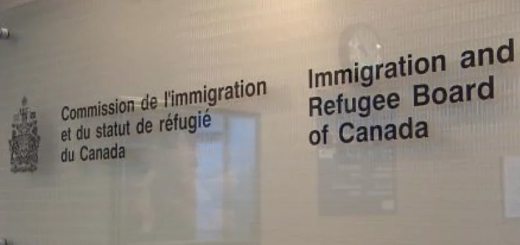PM Trudeau Appoints the Honourable Mary Moreau to the SCC

Roughly four months after Brown J.’s resignation from the Supreme Court of Canada (“SCC”), Prime Minister Trudeau has announced his appointment of the Honourable Mary Moreau to Canada’s highest court.
Moreau J.’s resume is rich, extensive, and diverse. Her judicial background renders her a strong candidate who is bound to significantly impact the SCC’s jurisprudence. The appointment of this Albertan jurist may, however, disappoint members from the legal communities of the other Western provinces who have been vying for a seat—and therefore a voice—on the SCC. Perhaps the most interesting aspect of Moreau J.’s appointment is her substantive background in minority language rights. As a Francophone woman, Moreau J. is highly passionate about increasing access to both official languages in Canadian governmental institutions.
A Highly Qualified Jurist
There is no question that Moreau J. is a highly qualified jurist. Moreau J. has experience on the bench and was not appointed directly from legal practice (Moreau J.’s Questionnaire). Moreau J. was appointed to the Court of Queen’s Bench of Alberta in 1994, and she became Chief Justice of the Court of King’s Bench of Alberta in 2017. She has acted as deputy judge for both the Supreme Court of Yukon and the Supreme Court of the Northwest Territories. Moreau J. has also sat on the Alberta Court of Appeal (“ABCA”) on several occasions, meaning that she hosts both trial and appellate-level judging experience (Moreau J.’s Questionnaire).
While prior judging experience is not a prerequisite to being appointed to the SCC, it is promising that Moreau J. has such a wealth of experience on the bench. The practice of writing a judgement effectively and communicating one’s reasons clearly is an elite skill that she has developed over several decades. In her questionnaire, for example, Moreau J. highlighted her judgement in Fédération franco-ténoise et al. v Canada (AG), 2006 NWTSC 20 [Fédération franco-ténoise], which was 210 pages long and written entirely in French.
Another Albertan—Enough to Appease the Masses?
Notably, Prime Minister Trudeau has kept with the tradition that at minimum, two of the nine SCC seats are filled by Justices from Western Canada (CBC). Like Brown J., Moreau J. hails from Alberta (CBC), which is likely to cause discontent among the other Western provinces who desire a seat. There is existing sentiment in British Columbia, for example, that the province’s voice is being neglected (Globe and Mail). To date, only four SCC Justices have been appointed from British Columbia, with none on the bench since McLachlin J.’s retirement in 2017 (Globe and Mail). Many British Columbians feel that their province should be treated as its own region rather than lumped together with the politically, geographically, and economically dissimilar prairie provinces (Globe and Mail).
Andrew Petter, a former Attorney-General and Law Dean of the University of Victoria, has stated (Globe and Mail):
To have B.C. be a spectator in the Supreme Court of Canada, as the third largest province, is just simply not acceptable.
Aside from the interesting political dynamics of another Albertan selection, it will be interesting to see how Moreau J. grapples with the slew of hotly debated cases that have been coming to the SCC from Alberta. The Court recently rendered its decision in the Reference re Impact Assessment Act, 2023 SCC 23 [IAA Reference], where it deemed parts of the federal Impact Assessment Act, SC 2019, c 28, s 1 to be ultra vires and therefore unconstitutional. The case had been referred to the ABCA by Alberta’s Lieutenant Governor in Council (IAA Reference, para 50).
Similarly, the SCC has granted leave to appeal from the ABCA in another division of powers case: TransAlta Generation Partnership v Alberta (Minister of Municipal Affairs), 2022 ABCA 381 (SCC Docket 40570). In this case, Moreau J. will weigh in on whether the 2017 Alberta Linear Property Assessment Minister’s Guidelines are ultra vires (SCC Docket 40570).
Language Rights—A Unique Expertise
Perhaps the most interesting aspect of Moreau J.’s appointment is her unique substantive legal background. She has significant experience grappling with s. 23 of the Canadian Charter of Rights and Freedoms, which guarantees minority language educational rights, as well as language rights more broadly. As a Francophone woman in the English-majority province of Alberta, Moreau J. is passionate about minority language rights. In her questionnaire, she stated:
I also experienced the challenges that come with belonging to a minority group in a majority Anglophone province. My access to instruction in French was limited by provincial regulations to 50 percent of the time.
One of Moreau J.’s earliest and most notable cases as a lawyer was her representation of Luc Paquette in Paquette v R in Right of Canada, 22 DLR (4th) 67 [Paquette] (aff’d Paquette v Canada, 1987 ABCA 228). In that case, she successfully argued that court-related language rights in Canada’s North-West Territories Act were incorporated into the laws of Alberta (Paquette). Thus, her criminally charged client was entitled to be tried in French, despite s. 23 of the Charter’s silence on language rights in courtrooms (Paquette). Moreau J. claims that Paquette opened doors for her to argue similar cases (Moreau J.’s Questionnaire), and indeed, she went on to litigate several other language rights-related cases (see, for example: Mahé v Alberta, 1987 ABCA 158; Reference Re Use of French in Criminal Proceedings in Saskatchewan (1987), 58 Sask R 161 (CA)).
Moreau J. has also grappled with complex language rights issues on the bench. As mentioned above, she wrote a 210-page judgement in Fédération franco-ténoise, which centred on the scope of the Northwest Territories government’s obligation to provide various governmental services in French (Fédération franco-ténoise, 1).
Moreau J. made it abundantly clear in her questionnaire that of all her legal contributions, she is most proud of her work in the area of language rights. She stated:
When I look back at my careers to date as a lawyer, a puisne judge and Chief Justice, I believe that my greatest contribution to the law and the pursuit of justice in Canada was to improve access to justice in both official languages in government institutions and the courts.
Looking Ahead
It is clear that Moreau J. is a highly accomplished jurist who will bring a unique perspective to Canada’s highest court. Given her personal background as a Francophone woman and her legal background in minority language rights, it will be especially fascinating to see her grapple with the next s. 23 case that hits the SCC docket.
Editor: Ariel Montana






Join the conversation